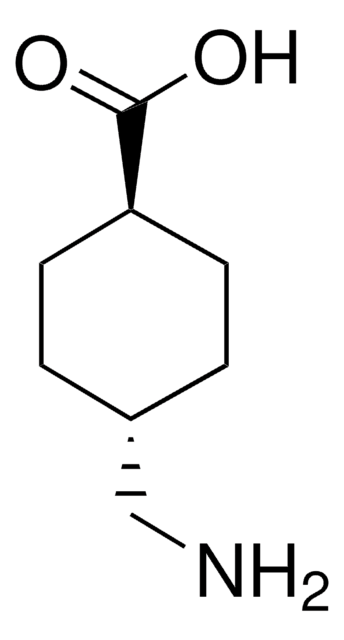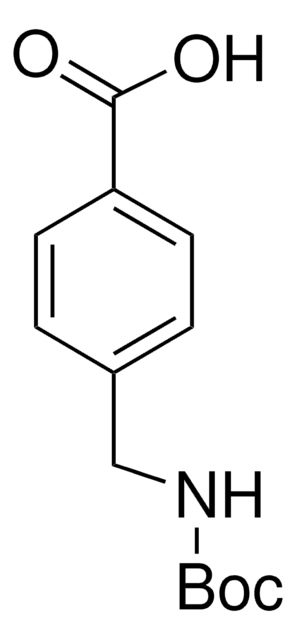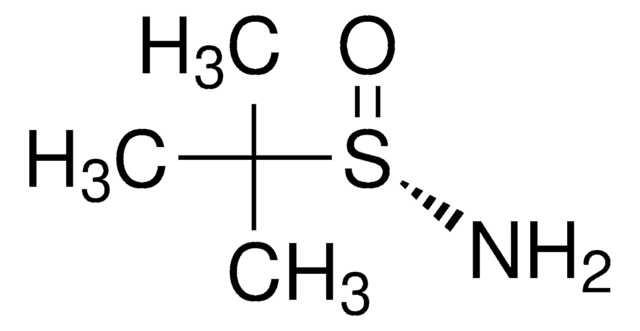283746
4-(Aminomethyl)benzoic acid
97%, for peptide synthesis
Synonym(s):
PAMBA
About This Item
Recommended Products
Product Name
4-(Aminomethyl)benzoic acid, 97%
Quality Level
Assay
97%
form
powder
reaction suitability
reaction type: solution phase peptide synthesis
mp
≥300 °C (lit.)
application(s)
peptide synthesis
SMILES string
NCc1ccc(cc1)C(O)=O
InChI
1S/C8H9NO2/c9-5-6-1-3-7(4-2-6)8(10)11/h1-4H,5,9H2,(H,10,11)
InChI key
QCTBMLYLENLHLA-UHFFFAOYSA-N
Looking for similar products? Visit Product Comparison Guide
Application
- Cobalt carboxy phosphonates.
- Apoptozole (Az), which has cellular potency to promote membrane trafficking of mutant cystic fibrosis transmembrane conductance regulator (CFTR) chloride channel activity.
- Cyclopeptide composed of L-glutamic acid and 3-aminobenzoic acid that can be used as receptors for a variety of cations and anions.
- A bioactive peptide which has potent GPR54 (a G protein-coupled receptor) agonistic activity.
Other Notes
Signal Word
Warning
Hazard Statements
Precautionary Statements
Hazard Classifications
Eye Irrit. 2 - Skin Irrit. 2 - STOT SE 3
Target Organs
Respiratory system
Storage Class Code
11 - Combustible Solids
WGK
WGK 3
Flash Point(F)
Not applicable
Flash Point(C)
Not applicable
Personal Protective Equipment
Choose from one of the most recent versions:
Certificates of Analysis (COA)
Don't see the Right Version?
If you require a particular version, you can look up a specific certificate by the Lot or Batch number.
Already Own This Product?
Find documentation for the products that you have recently purchased in the Document Library.
Our team of scientists has experience in all areas of research including Life Science, Material Science, Chemical Synthesis, Chromatography, Analytical and many others.
Contact Technical Service









